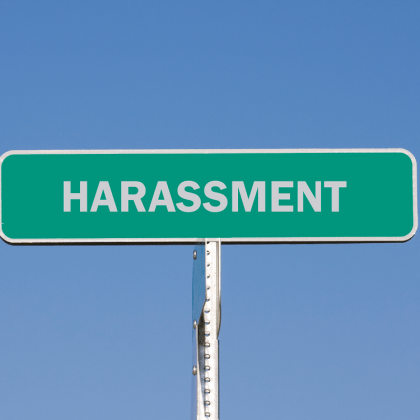#ustoo: How can we best make a difference?
Jenn and I sat across from each other at a wooden table in a light filled café in central Oklahoma, discussing yet another incidence of sexual assault on a college campus. Sickened by another report, we felt compelled to do something to help. But how could we best make a difference? As we discussed ideas over the coming year, issues of sexual harassment and assault continued to make headlines, even before the #metoo movement began in full force. Questions around training and organizational culture change, two issues with which industrial-organizational (I/O) psychologists are uniquely familiar, quickly became the center of attention. “We know about that!” we said.
As we dug into the I/O psychology and management literatures, however, we realized that these topics, as they relate to the #metoo movement, were simply not a central issue. In fact, it quickly became apparent that we would be hard pressed to find enough empirical research on sexual harassment prevention training to draw any conclusions. As such, our article, “#ustoo: How IO psychologists can extend the conversation on sexual harassment and sexual assault though workplace training” became a review of the literature that does exist – sexual assault and harassment prevention interventions on college campuses – and the unique contribution IO psychologists could make when it comes to reducing sexual assault and harassment through training and culture change initiatives in the workplace and beyond.
The article reviews the role of four key areas, including individual differences, training design, evaluation, and institutional climates, in creating lasting behavioral change. Although much of the information presented will not be surprising to scholars and practitioners familiar with training design and implementation, we highlight the novel challenges associated with this particular context. For example, it’s not a secret that providing individuals with the opportunity to practice the learned behavior both in and after training is important. When the goal of the training, however, is to eliminate harassment and assault, giving people the opportunity to perform their new skills on the job or in the classroom runs counter to the goal of training. If the training works, there should be no opportunity to perform! Finding novel ways to integrate practice into the workplace and to continue discussion on the topic is then a central challenge for this type of training. Of course, how to respond to sexual assault and how to avoid assault and harassment are both delicate topics that requires sensitivity and thoughtfulness. This highlights the need for special care and attention in practice design and administration to avoid unintended consequences or backlash.
Other topics such as evaluation and measurement also present challenges. Measuring attitudes and behavior related to sexual harassment is difficult as many may not overtly admit to agreeing with, or displaying these behaviors given their socially unacceptable nature. Even when the process of attitude change is started during training, we find that, even in empirical research, it is rare that follow-ups occur. When they do, the data suggests that oftentimes attitudes and behavior have reverted to where they were pre-training. We need innovations in and commitment to measurement if we are going to appropriately assess these efforts in order to understand what interventions are effective. Further complicating this issue, organizations are not motivated to share information on this topic as it may paint the company in a negative light. Without this information, however, scientists are left in the dark as to how to best advance training and culture interventions in this area. More partnerships and more transparency are needed if we have hopes of making an impact here.
The field of IO psychology has much to contribute in this area and it’s about time we join the conversation. We hope this article helps others begin thinking about this issue and how we, together, can make a difference.
Access the full article here: “#ustoo: How IO psychologists can extend the conversation on sexual harassment and sexual assault though workplace training”





